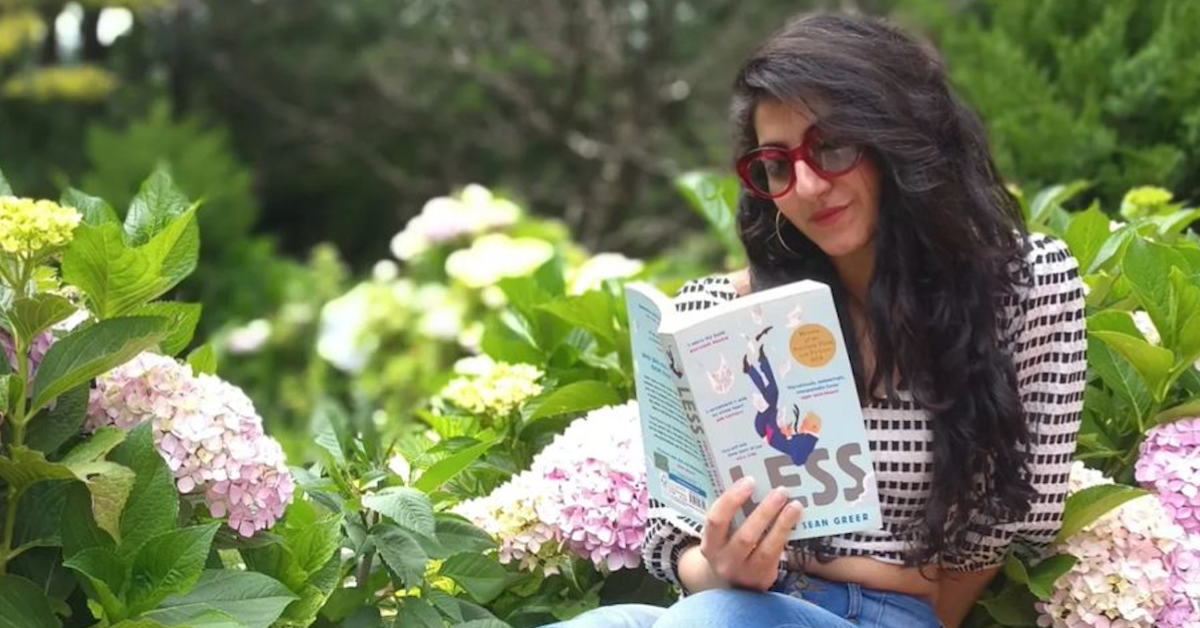
Ever been so engrossed in a good book that time and space cease to exist? Sitting in a hospital waiting room, with 45 anxious minutes ahead of her, Saumyaa Vohra delved into the pages of her chosen read and let it transport her to a world far away. The worries dissolved, and for that fleeting moment, she found herself free from stress.
It’s not a surprise why, at the risk of sounding cliche, Vohra admits, a good book, to her, is something that “swallows you whole.”
An author, Vohra’s latest masterpiece is the novel One Night Only. In an exclusive interview, she takes us on a personal journey, uncovering her cherished childhood tales, the fascination of far-off boarding schools, and the profound impact of authors both near and distant. Among them, there is one book that left an indelible mark on her soul.
Her introduction to the written word
As a young girl, Vohra found solace in the pages of well-told tales, effortlessly escaping from reality. Blyton’s Malory Towers captivated her with the endless possibilities of adventures, while Dahl’s simple writing style held her spellbound until the final page. However, she noticed a lack of diversity in the books she encountered, with stories dominated by white characters from faraway lands. Now, as a writer entrenched in the business of words, she finds it challenging to give a book the time it needs to gradually enchant her.
Over time, her literary horizons expanded, drawing her towards the allure of “grown-up” books and authors who told stories closer to her own experiences. Writers like Arundhati Roy, Jhumpa Lahiri, and Salman Rushdie beckoned her with their unique voices and the exquisite beauty of their language. Although she may not write like them, she discovered a genuine enjoyment in reading their works. Beyond intricate plots, it was the authors’ unique voices and the beauty of their language that truly captivated her. “When browsing bookstores, I had a simple yet effective method: to read the plot summary on the back cover and then flip to two random pages. If those pages were written well and the style resonated with me, I would purchase the book.”
From avid reader to avid writer
View this post on Instagram
Through her journey from being a passionate reader to an author, Vohra’s perception of books has evolved too. They serve as a gateway to exploring lives and experiences she may never encounter firsthand. Books possess a unique ability to transport her to different realms, allowing her to lose herself within their pages. In her own words, she explains, “I love cinema, but I think books have a special power that TV and cinema don’t always possess: the ability to alter our sense of space. When I’m reading, I feel a change within myself. I feel more present, can be deeply invested in a visual medium, but with books, I feel a sense of being swallowed whole, engulfed in the narrative.”
Vohra values the unique ways in which books and films tell stories. She doesn’t believe in ranking one over the other. According to her, adaptations too, don’t need to adhere strictly to the source material but should retain the essence while allowing for interpretation to tell a compelling story. “One of my favourites is ‘Call Me by Your Name.’ It is an incredible book, and the film adaptation did an excellent job of bringing it to life on screen.”
The writer, Vohra, draws inspiration from her own experiences, which she recognises are shared by other women as well. “I find joy in reading and writing about women.” The solidarity of female friendships is unparalleled for those who have experienced it, Vohra has, and she hopes her words can create a safe and inclusive space for those who may long for it.
Building upon this fundamental belief, she emphasises the importance of portraying women as multi-dimensional characters, moving beyond stereotypes and unrealistic portrayals. “Initially, women were confined to roles as wives or daughters, but later there was an intense overcompensation, portraying women as superheroes. It’s about finding a balance between someone you can empathise with and someone you aspire to be. Most women fall somewhere between those extremes.”
One Night Only and the book that changed her life
View this post on Instagram
These beliefs come together in her recently published novel, One Night Only, that’s been called an ode to desire, sexuality and female friendships. “We’ll watch Zindagi Na Milegi Dobara, a hundred times, why? Because it’s a great story, and it comforts you. I want to create books that people can return to. With ‘One Night Only,’ that was the goal.”
How does Vohra create this sense of comfort? Is it through following a set pattern that once worked? Contrarily, she dismisses this understanding of catering to a formula, unless, she says, you’ve mastered it. Courage to her, lies in creating a piece of art that inspires, again and again, a feeling, nostalgia, a pull to come back to it. Breakfast at Tiffany’s by Truman Capote does that for her.
But if there’s a book that changed her life, it was Arundhati Roy’s The God of Small Things. Roy’s gumption to break free from convention and the rules that literary schools stand by, her risk to play with narrative and deliver something beautiful and refreshing instead of messy, and her obvious shift from the writing styles of white male authors that had dominated Vohra’s reading experiences so far served as a reminder of the transformative power of storytelling itself. “Roy showed me, you can make your own rules as a writer.”
The myth of happy endings, and her own journey
View this post on Instagram
In a world often seeking solace in happy endings, Vohra discovers a profound connection to the heartbreak and wholeness within The God of Small Things’ protagonist, Ammu’s story. “She’s been through so much, I think I’d want to see her and hold her hand.” Rarely have works of art evoked physical responses for Vohra, but The God of Small Things did, “I’ve had my fair share of emotional experiences while reading books, but this was different. I could feel that pang of heartbreak deep in my stomach. And the remarkable thing is, it happened every time I revisited the book.”
Vohra acknowledges the completeness of certain works of art, that leave readers fulfilled and grateful for the emotions they evoke. And while the aftertaste of the story still lingers with Vohra, she finds herself utterly satisfied with the closure Roy’s writing brings. “I don’t think it needs to answer anything that it hasn’t. What the book’s given me is enough, and I’m glad to get it.”
She reflects on her own journey as a reader turned writer and recognises the artistry found within sadness and the power of starting meaningful conversations. Her novel, One Night Only, aims to start discussions about sex, sexuality, and female friendships, challenging the traditional notion of a happily ever after tied solely to heterosexual romantic relationships.
“I believe good books should do both, they should lift you up, and they should break you down. Because in both, there’s something great.”
Someday, Vohra aspires to craft a story that captures the essence of heartbreak, and much like the powerful books that have profoundly touched her, swallows the reader wholly.

